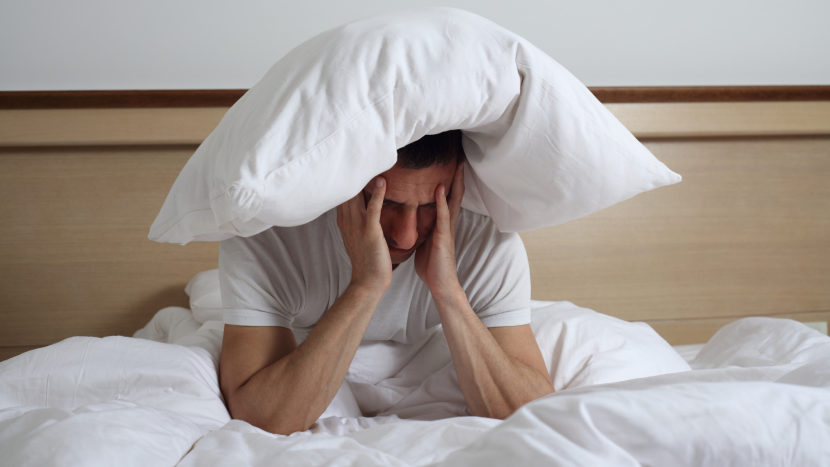The Origin of the 8-Hour Rule
In the late 1800s, Robert Owen proposed the “8-8-8” rule, which recommended dividing the day into equal parts: 8 hours of work, 8 hours of leisure, and 8 hours of sleep. This idea gradually gained acceptance and became the standard in many workplaces. Over time, the concept of 8 hours of sleep was emphasized as essential for maintaining health and happiness.
However, achieving a consistent sleep cycle is not always easy. Many people struggle with sleep problems, such as difficulty falling asleep or staying asleep throughout the night. Night sleep can be disrupted by stress, technology, or irregular schedules, making it harder to reach the ideal 8 hours of sleep.
Despite these challenges, prioritizing rest remains crucial. By focusing on a balanced routine, individuals can improve their sleep quality and overall well-being.
Quality Over Quantity

Sleep quality is crucial for determining how rested you are. While sleep quantity, such as getting 8 hours of sleep, is often used to measure rest, sleep quality has the biggest impact on well-being. Even after a full night’s sleep, sleep deprivation can still occur. Over 50% of people have experienced sleep problems, with 20% reporting they have fallen asleep at the wheel. Prioritizing sleep quality over quantity is essential for overall health.
Quality sleep involves deep, uninterrupted rest, which allows the body and mind to recover. To improve sleep quality, a consistent sleep cycle should be established. A relaxing bedtime routine is also recommended. Additionally, the sleep environment should be optimized by keeping it dark, quiet, and cool. Stress should be managed effectively, and stimulants like caffeine should be avoided before bedtime. Finally, electronic screens should be limited in the evening to support better night sleep.
Factors That Affect Sleep Needs
- Age: Sleep requirements change as you age. Infants sleep for 16 hours or more, teens need around 9+ hours, most adults function best with 7-9 hours, and older adults experience lighter, fragmented sleep and may need less.
- Health Conditions: Chronic conditions like hypothyroidism, diabetes, heart disease, and depression can increase fatigue by altering sleep cycles. Certain medications also impact sleep, either by increasing the need for rest or causing disruptions.
- Diet & Hydration: Consuming caffeine, sugar, or alcohol before bed disrupts sleep, while heavy meals make sleeping uncomfortable. Drinking enough water throughout the day helps, but excessive fluids at night lead to frequent wakeups.
- Lifestyle & Daily Routine: Intense physical activity requires more sleep for muscle recovery, while mentally demanding tasks call for extra rest to refresh the brain. Irregular work schedules, night shifts, and excessive screen time disturb sleep patterns.
- Sleep Quality: Waking up multiple times during the night, dealing with insomnia, snoring, or sleep apnea reduces deep sleep, leading to grogginess even after spending a full eight hours in bed.
- Environmental Factors: Bright lights, loud noises, improper room temperature, poor air quality, and an uncomfortable mattress or pillow negatively affect sleep, often resulting in restless nights.
- Genetics & Biological Clock: Your genes determine whether you naturally need more or less sleep. Circadian rhythms influence whether you feel more energetic in the morning or at night, shaping your ideal sleep-wake cycle.
- Physical and Mental Stimulation Prior to Bedtime: Exercising, working late, or playing video games before bed overstimulates the brain, making it harder to relax. Establishing a calming bedtime routine signals the body that it’s time to sleep.
- Technology & Blue Light Exposure: Watching TV or using smartphones before bed suppresses melatonin production, making it harder to fall asleep. Reducing screen time or using blue light filters improves sleep quality.
Debunking the Myth
Based on what has been discussed, it is clear that the 8-hour sleep rule is a general guideline rather than a strict rule for everyone. While many people benefit from eight hours of sleep, individual needs can vary. Factors such as age, genetics, lifestyle, and health play a role in determining how much sleep is required. Some individuals may function well on less than eight hours, while others might need more.
The sleep cycle, including stages like REM (rapid eye movement sleep, is a deep sleep stage where dreaming occurs, and it is essential for memory consolidation, learning, and emotional regulation). This is crucial for understanding sleep quality. Night sleep can be disrupted by various sleep problems, such as stress or poor habits. Therefore, focusing on quality sleep rather than just duration is essential. Listening to your body and making adjustments, like maintaining a consistent sleep schedule, can help address sleep issues. Ultimately, prioritizing sleep health is more important than strictly aiming for eight hours every night.
How much sleep do you need?
The amount of sleep a person needs varies throughout life and depends on factors like genetics, health, and environment. According to the AASM, sleep requirements differ by age group:
- Infants (4-12 months): 12-16 hours, including naps
- Children (1-2 years): 11-14 hours, including naps
- Children (3-5 years): 10-13 hours, including naps
- Children (6-12 years): 9-12 hours
- Teenagers (13-18 years): 8-10 hours
- Adults: 7 or more hours
It is suggested that adults aim for 7-9 hours of night sleep, but individual needs may vary. Feeling rested and refreshed upon waking is a key sign of adequate sleep. However, persistent fatigue or the urge to sleep during the day may indicate sleep deprivation.
Poor sleep quality can also be a problem, even if the recommended hours are met. Signs include frequent waking, snoring, or breathing difficulties. These issues can disrupt the sleep cycle and lead to daytime sleepiness.
Getting enough sleep can be difficult due to demands like work, school, parenting, and unhealthy sleep habits. To improve sleep quality and overall well-being, it’s important to address sleep issues and focus on building healthier routines.
Tips to get more sleep
- A wind-down routine should be created every night to prepare for sleep.
- The sleeping environment must be comfortable, quiet, and dark.
- Screens should be avoided 30 minutes to an hour before bedtime.
- Going to bed and waking up at the same time daily helps regulate the sleep cycle.
- Regular exercise can improve nighttime sleep quality.
- Caffeine intake should be limited, especially in the afternoon or evening.
- Alcohol consumption should be reduced as it can disrupt sleep.
- Naps too close to bedtime should be avoided to prevent sleep problems.
- If sleep issues persist despite these steps, a doctor or sleep expert should be consulted.
- Aiming for 7-9 hours of sleep is recommended, but individual needs may vary.

Conclusion: Rethinking the ‘8 Hours of Sleep’ Rule
The idea of needing 8 hours of sleep is more of a general guideline than a strict rule, as individual sleep needs vary. While the 8-hour sleep cycle became popular in the late 1800s, factors like age, genetics, and lifestyle influence how much rest you truly require. For instance, some people thrive on less sleep, while others need more. However, sleep quality often matters more than quantity. To improve your sleep cycle, focus on creating a consistent routine, optimizing your sleep environment, and avoiding screens or caffeine before bed. Transitioning to better habits, such as regular exercise and stress management, can also enhance nighttime rest. Ultimately, listening to your body and prioritizing quality sleep is key to feeling refreshed and maintaining overall health.




